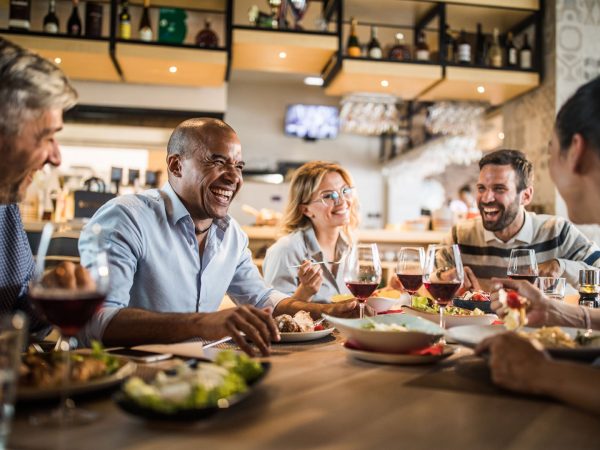When We Eat Most

The investigation also found that you’re not likely to eat more than usual when you’re with people you don’t know well. And results of earlier studies showed that obese women eating socially consume up to 29 percent more than they do when eating alone. A study team from the United Kingdom’s University of Birmingham led the research that delved into 42 earlier studies that explored the effects of social dining. They concluded that eating with others is more enjoyable and “enhanced reward from social eating could increase consumption.” The team also suggested that social norms might “permit” overeating in company but sanction it when eating alone and that providing and enjoying food becomes associated with praise and recognition from friends and family, strengthening social bonds. However, research leader Helen Ruddock noted that findings from previous research suggest that… “we often choose what (and how much) to eat based on the type of impression that we want to convey about ourselves. Evidence suggests that this may be particularly pronounced for women eating with men they wish to impress and for people with obesity who wish to avoid being judged for overeating.”
Source:
Helen K. Ruddock et al, “A systematic review and meta-analysis of the social facilitation of eating.” The American Journal of Clinical Nutrition, October 2019, DOI: 10.1093/ajcn/nqz155
More from this week’s bulletin:
- Sleeping Long Enough To Save Your Life
- Bleach And Indoor Air Pollution
- A recipe to try: Garlic Walnut Dip
Sign up for Dr. Weil’s Newsletters












